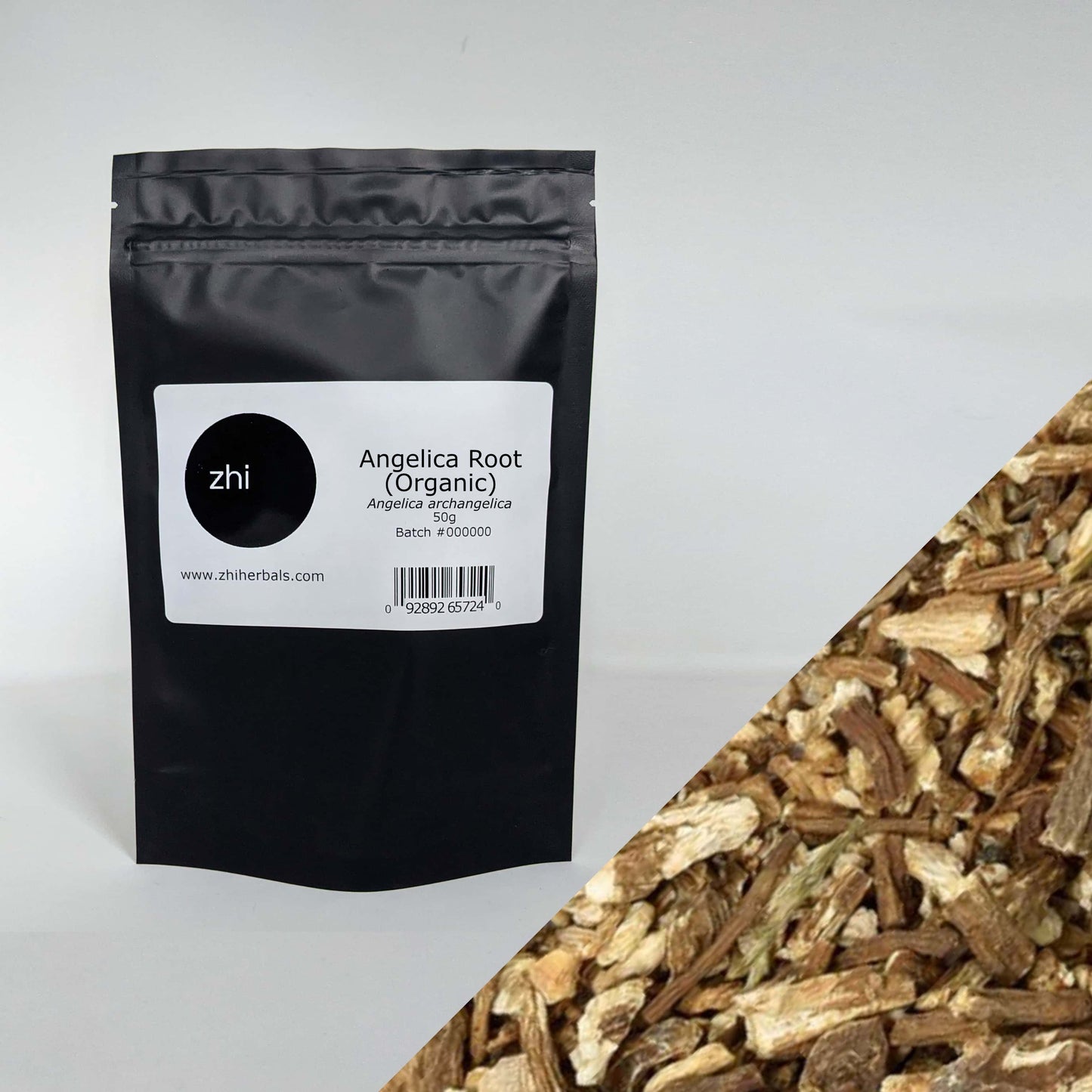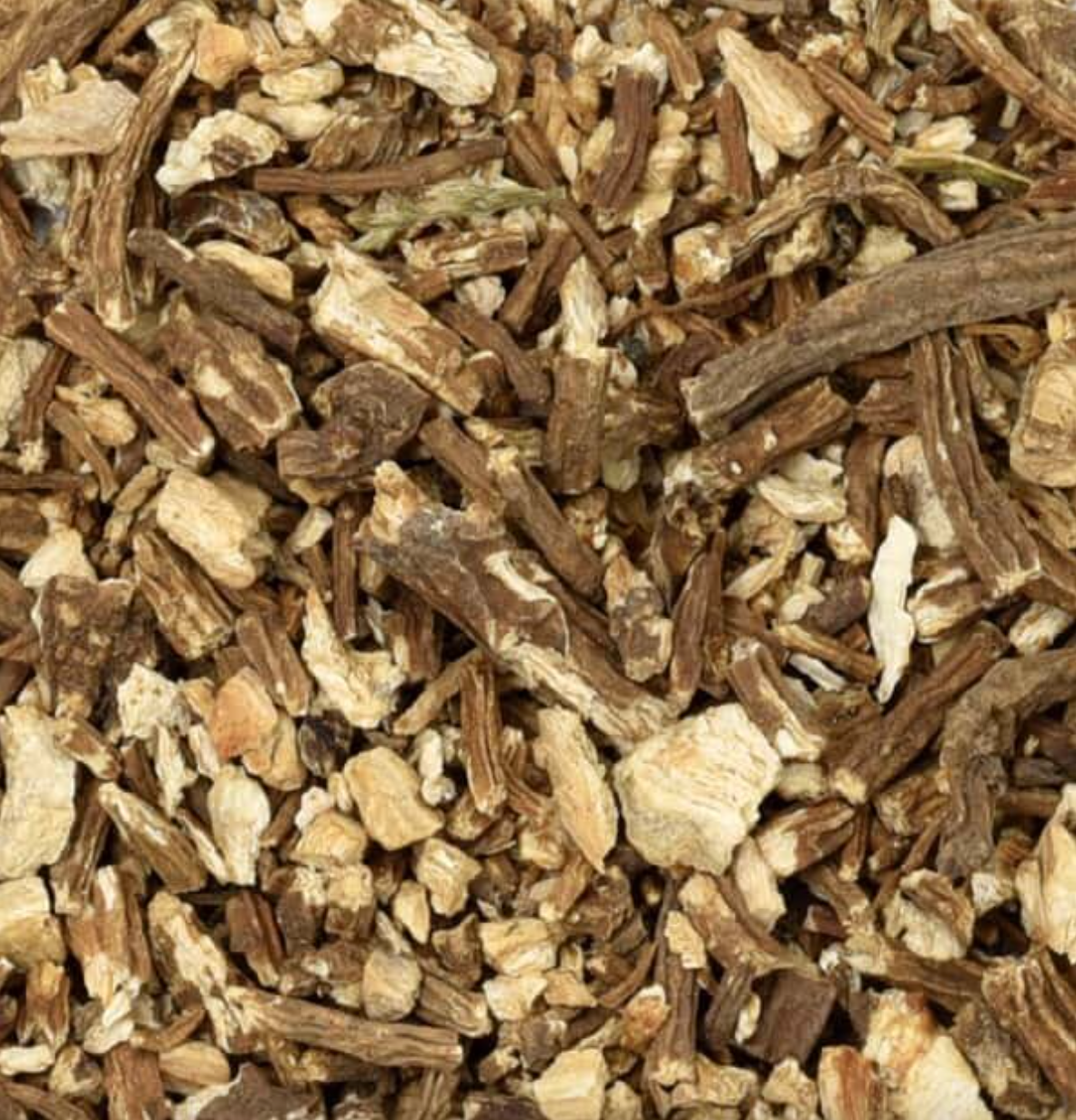Zhi Herbals
Angelica Root (Organic)
Angelica Root (Organic)
Couldn't load pickup availability
Common Name
Angelica Root, Garden Angelica, Wild Celery, Norwegian Angelica
Latin Name
Angelica archangelica
Origin
Croatia
What Is Angelica Root?
Angelica root is a biennial plant from the carrot and celery family. It has been used since the 10th century. It smells sweet and is often used in candy, drinks, angelica tea, and as a spice.
Angelica root grows in cold places like Russia, Sweden, and Iceland. It is a popular herb that is used for making both European and Chinese traditional medicines.
This type of angelica root, Angelica archangelica, is most often used in European and North American herbal medicine. Other varieties of angelica root include Angelica sinensis, which also goes by the names Dang Gui and Dong Quai. Dong Quai root can be found here on our website. Chinese angelica root, Angelica dahurica, is a related variety of angelica root which also goes by the names Bai Zhi, Garden Angelica, and Wild Angelica Plant.
There is a rich tradition of angelica root being used as a cooking herb. The young leaves of the angelica plant can be cooked as a vegetable. The stems of angelica can be candied, and may be used as a cake topping or dessert ingredient, especially in France. In the herbal liqueur Bénédictine, angelica root is one of the twenty-seven plants used as flavoring ingredients. Other herbs known to be used to make Bénédictine include hyssop, lemon balm, thyme, and orange peel.
Angelica root combines well with other herbs.
How to Use Angelica Root (Common Uses)
Angelica root can be taken internally as a tea or decoction, in capsules, and as an extract or tincture. The angelica root is also used in food and drinks for its flavour.
Topically, angelica root can be used as an infused oil for skin health.
Visit our herbal blog to learn more about the benefits of angelica root.
Medicinal Uses and Benefits of Angelica Root
Angelica root is often used for digestion problems, coughs, and sore joints. Angelica has anti-inflammatory effects, and it can help reduce swelling and calm the body.
Drinking angelica root tea may help clear mucus from the lungs. We like to use it as an ingredient in our Lung Revitalizing Tea Blend.
Angelica root helps the digestive system. It can help ease bloating, cramps, and nervous stomach. In our Digestion Stimulating Tea, angelica root supports stomach acid and enzymes, which help break down food.
As a bitter herb, angelica root may help protect the liver. It could also help to lower blood pressure and calm the nervous system.
For skin and hair, angelica oil may be used on the skin to help joint pain and rheumatism. It is important to know that when applied topically, angelica root may have the side effect of increasing skin sensitivity to the sun.
Overall, angelica root is a safe yet powerful herb. In European herbal medicine, angelica root is sometimes even prescribed to children and breastfeeding women in small doses.
Active Constituents in Angelica Root
Volatile oil, monoterpenes (beta-phellandrene, a-pinene), sesquiterpenes (beta-bisabolene, bisabolol, beta-caryophyllene), phthalates, flavonoids, sterols, furanocoumarins (angelicin, bergapten).
Notable Facts About Angelica Root
Long ago, people believed an angel gave us this plant to help stop the plague. That’s where the name “angelica” comes from. In Scandinavia, it is used in both traditional herbal medicine and in spiritual practices.
Share


I have made several orders from Zhi and I have been very happy with every single one, including my most recent. The options and quality are excellent and the speed of delivery is amazing! The only regret I ever have is not ordering enough. I appreciate you Zhi folk and make a great day!


